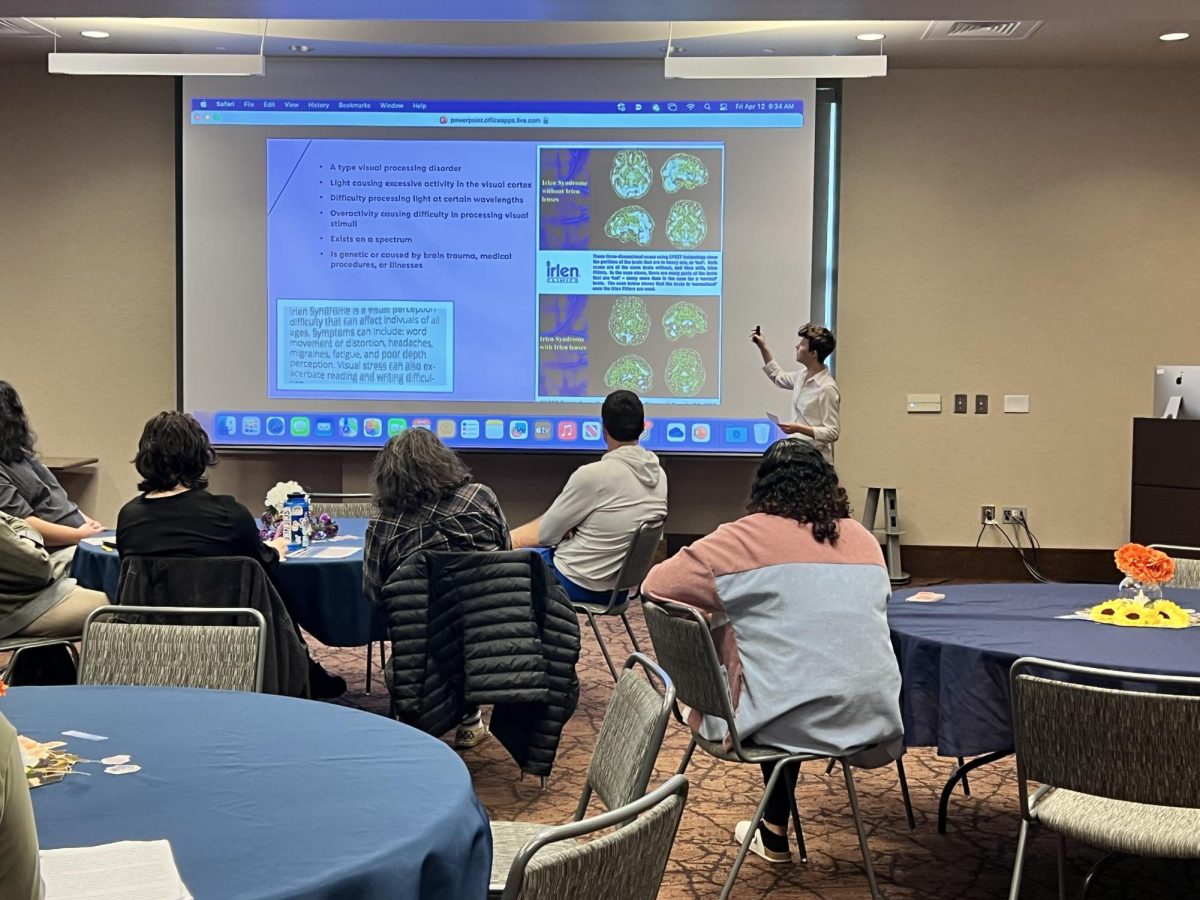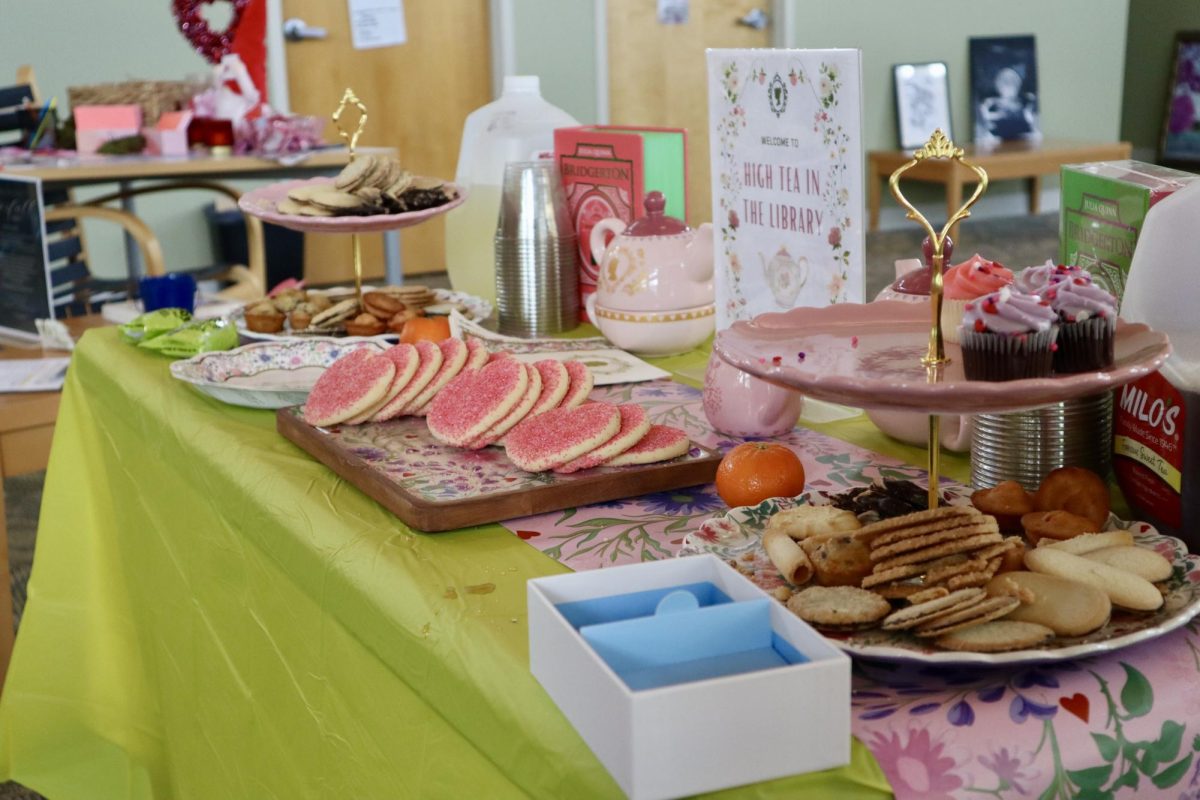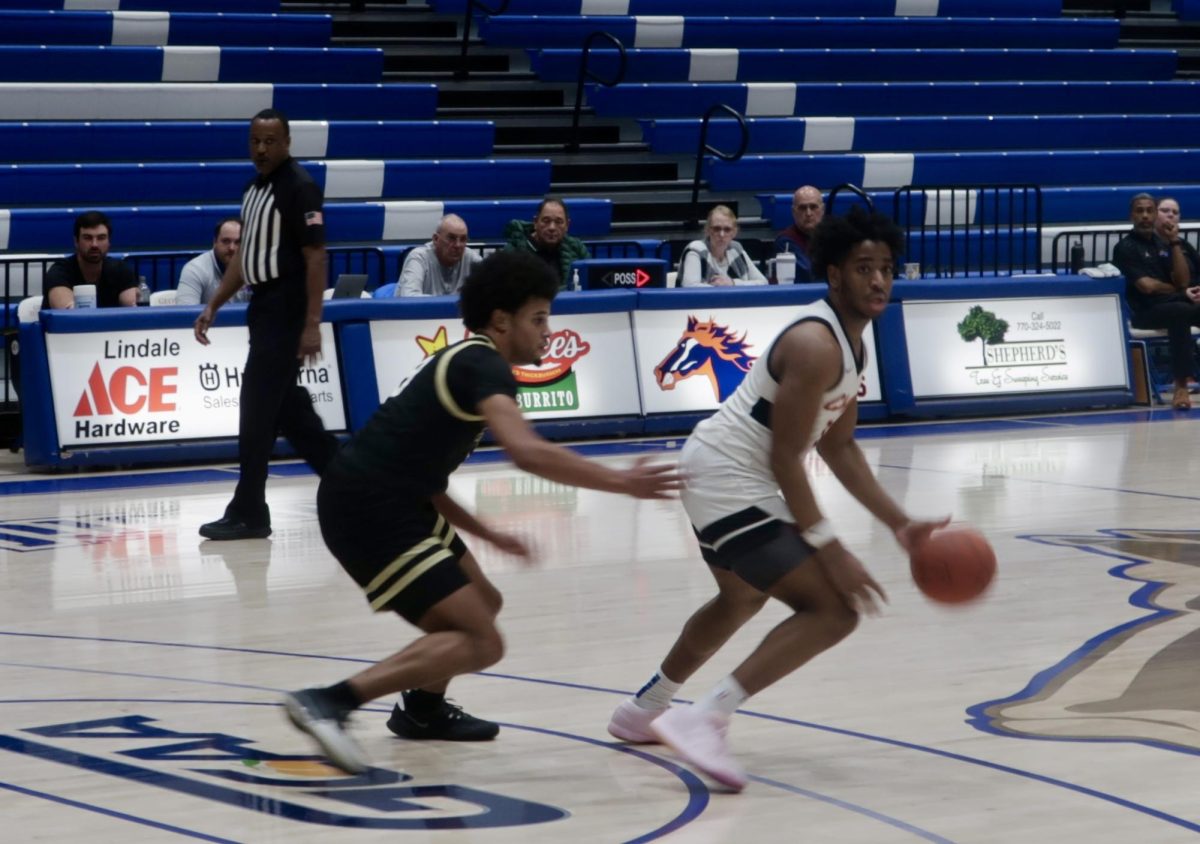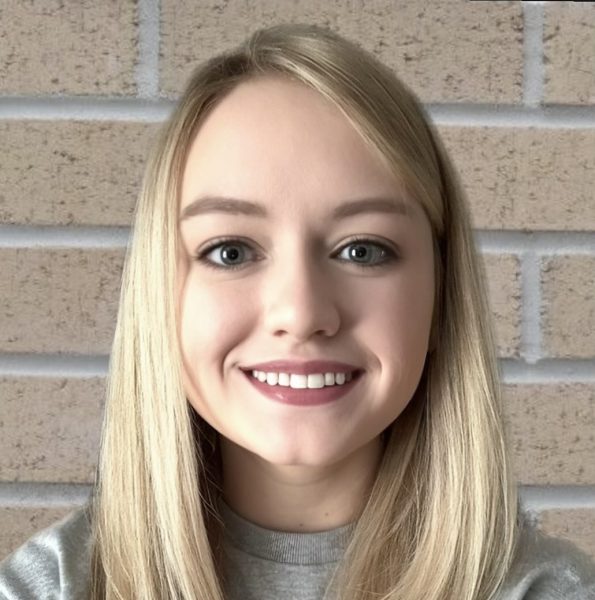The Psychology Club marked a milestone by completing its first annual Psychological Academic Symposium on the Cartersville campus, where students presented their psychology research.
The symposium, scheduled from 9 a.m. to 1 p.m. on April 12, featured a series of student-led presentations on their chosen topics, each lasting 10 to 15 minutes.
“This conference created a platform for our students to present their research on a wide range of topics, from Cults to the Irlen Syndrome to Loneliness in the Digital Age,” said Elizabeth Dose, professor of psychology.

Symposium speakers gather for a group photo.
Psychology Club President Sharlotte Baine was responsible for organizing the symposium and also presented her research on both the cultural dynamics of the 12 tribes as well as the developmental impacts on children of incarcerated parents.
“Sharlotte deserves the most upstanding praise for her initiative in building the First Annual Psychological Symposium,” Dose said.
Yanirei Sandoval, a psychology major with aspirations for law school, offered an in-depth analysis of Ted Bundy’s criminal behavior.
“I’m studying forensic psychology to grasp the motivations behind crimes from the perpetrator’s perspective,” Sandoval said.
Ray Young focused on digital well-being by discussing the complex relationship between addiction, loneliness and our increasingly digital existence.

Ray Young is pictured presenting his PowerPoint.
Rachel Lusion’s display about Irlen Syndrome, a photo-processing disorder, added an interactive element to the symposium. She demonstrated how color overlays can alleviate symptoms like distortion and shadows for individuals with the disorder.
“I’m trying to spread awareness on this to help people with this syndrome to be able to find solutions that will help them,” Lusion said. She encouraged attendees to explore resources such as Irlen.com for more information and support, including an online self-assessment.

Rachel Lusion up front presenting her PowerPoint on her research.
Additionally, Levi A. Marton contributed to the symposium’s diversity with his talk on the psychological effects of transgender politics, expanding the discussion to include relevant social issues.
The event ended with participants walking away with tangible acknowledgment of their hard work: a t-shirt and a letter of participation.
Dose emphasized the presenters’ passion, professional conduct, and academic integrity and expressed anticipation for the symposium’s future.
“We look forward to hosting the symposium next year and to the new student proposals,” Dose said.

































































